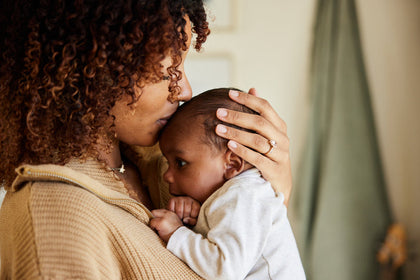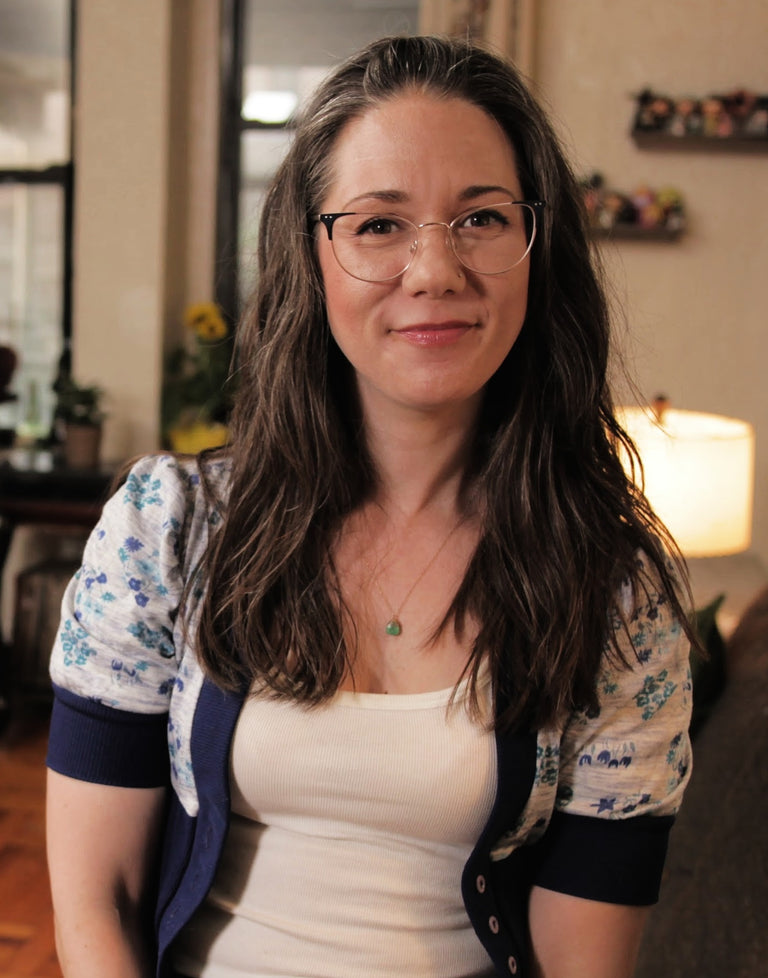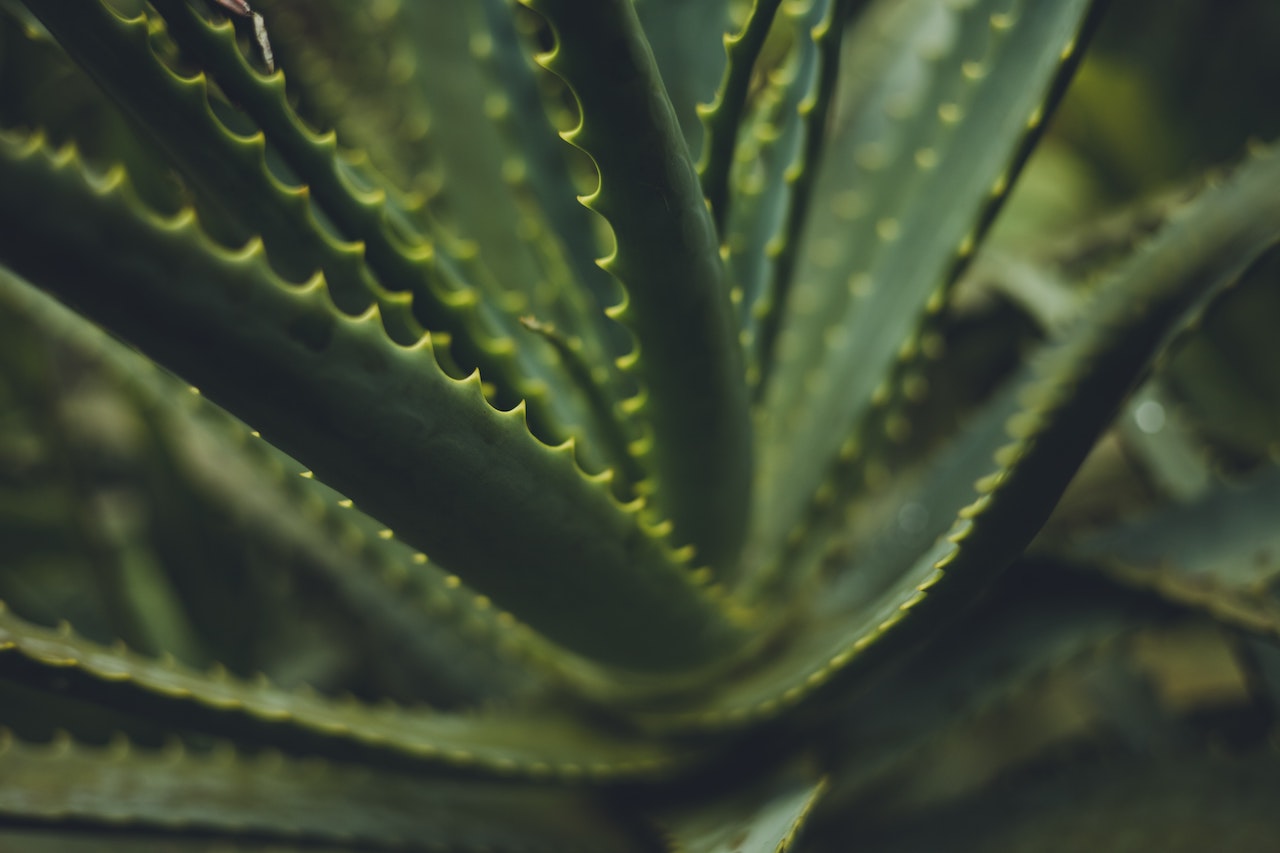Postpartum hair loss isn’t something most mothers think about while they’re expecting, but it’s a very common occurrence that happens to 40-50% of new moms. However, like most changes you experience during pregnancy, this type of hair loss is temporary.
Read on to discover when postpartum hair loss starts, along with helpful information and tips. Plus, what products you can use to encourage thicker looking hair.
#include-related-slider#
When Should I Expect Postpartum Hair Loss to Start?
Even though many women experience longer, fuller and thicker hair while pregnant, that can all change after giving birth. Around three months after childbirth, during the postpartum period, you may notice excessive shedding on your pillowcase and in the shower drain. This type of hair loss, known as postpartum alopecia, normally peaks around four months, according to the American Academy of Dermatology.
“While it’s normal to lose about one hundred hairs a day, new moms may shed hundreds of hairs a day,” said Dr. Zachary Okhah, M.D. and cosmetic surgeon at PH-1 Miami. “But don't be alarmed. This type of hair loss is temporary and a result of your body beginning to return to its pre-pregnancy norm as your estrogen levels decline,” he added.
Shop: The VEGAMOUR Hair Collection
What Causes Postpartum Hair Loss?
Postpartum hair shedding is tied to the changes in hormone levels that happen both during pregnancy and after giving birth.
“Postpartum hair loss is caused by a prolonged anagen (growth) hair phase,” explained Dr. Lisa Rhodes, board-certified dermatologist with Westlake Dermatology. “Follicles remain in a prolonged anagen phase during pregnancy and then cycle into the telogen phase after delivery,” she said.
So while you’re pregnant, increased estrogen levels encourage hair follicles to remain in their active phase of growth, which means prolonged hair growth and retention. Yep, pregnancy hormones can mean more and better hair while you're expecting.
After birth, these heightened estrogen levels decline sharply, and the follicles move from the anagen growth phase to the telogen (resting) phase. “Postpartum hair loss is actually a form of telogen effluvium,” explained Dr. Rhodes.
Find Out: Postpartum Hair Loss Explained
How Long Does Postpartum Hair Loss Last?
“After delivery, hair follicles have to reset in their growth/shed cycle, and a remarkable increase in shed can occur for several months,” said Dr. Rhodes. But remember, this hair loss, even if it seems extreme, is only temporary.
“As the hair reenters the growth phase, the rapid loss of hair will slow down and eventually cease,” added Dr. Erkan Buyuk, a board-certified reproductive endocrinologist with RMA of New York.
Hair Growth After Postpartum Hair Loss
Due to the nature of our hair growth cycles, the shedding of a hair from its follicle typically signals that a new hair shaft has already begun to grow. This means that once the onset of postpartum hair loss subsides, you should expect to see new hair on the horizon.
Remember that hair grows about a half-inch per month, so it will take some time to be able to really see your hair’s fullness coming back. The American Academy of Dermatology Association advises that most mothers see their hair return to its normal fullness within a year of giving birth, if not earlier.
If you don’t see hair growth getting back to normal within the first year after childbirth, consult with a health care provider to make sure there aren’t any underlying health issues at play.
“Chronic diseases, nutritional deficiencies, significant emotional stress, some hormonal diseases like thyroid disease, some medications, and infections of the scalp may be associated with this type [telogen effluvium] of hair loss,” explained Dr. Buyuk. “If extreme hair loss persists, then women should see their dermatologist to make sure that there is no other underlying condition."
Get The Full Picture: How Long Does Postpartum Hair Loss Last?
Is There Anything I Can Do to Prevent Postpartum Hair Loss?
Not all women will experience postpartum hair loss, but for those who do, the answer is no, you can't prevent or stop postpartum hair loss. The hormonal changes that come along with pregnancy are not only natural but also essential for the healthy development of the baby.
Encouraging Healthy Growth After Postpartum Hair Loss
Most often your body, and your hair growth cycles, will return to normal on their own, so there really isn’t a postpartum hair loss treatment plan prescribed by doctors.
But there are ways (backed by doctors and science) to support healthy hair growth.
Also: What Hair Wellness Really Means
Diet and Supplements
“Eating a healthy diet with adequate protein and iron, as well as biotin supplements, will help 'feed' the follicles and can help support the return to normal hair growth,” said Dr. Rhodes.
Healthy eating is essential for beautiful hair and a healthy body. But healthy eating can also be a challenge for new moms (or any mom!). Boosting the vitamins, nutrients and minerals that you get from food sources with supplements could be just the thing to make sure your body is getting all you need. Our expertly formulated GRO Biotin Gummies pack not only biotin but also all the essential vitamins and minerals needed to support healthy hair in an all-natural vegan and gluten-free daily gummy.
Read: One Woman’s Experience With Postpartum Hair Loss
Stress Management
Having a new baby is an experience that most moms would agree is life-changing in all the most wonderful ways. But that doesn’t mean it’s easy!
After giving birth, the body is under a lot of physiological stress, not just from hormonal changes but also as it heals from childbirth. Add to that the demands of taking care of a newborn, and it becomes especially important for moms to reduce stress however they can.
Stress can be a major part of hair loss, so consider tried, tested and true ways of relieving stress by spending time outdoors in the sunshine, cuddling with a pet, having a good laugh or spending quiet time in meditation.
Discover: 9 Ways to Naturally Lower Cortisol
Add Some TLC to Your Hair Care Routine
Be gentle! Avoid tight ponytails or other tight hairstyles, heat styling and chemical treatments whenever possible.
“You can also use a volumizing shampoo,” advised Dr. Alan Lindemann, a board-certified obstetrician with over 40 years of experience in working with moms-to-be. “A protein-rich shampoo will coat your strands to make them look thicker and fuller,” he added.
VEGAMOUR’s GRO Revitalizing Shampoo and Conditioner is made with our proprietary all-vegan keratin protein, Karmatin™, which will leave each and every one of your strands silky smooth.
The Takeaway
Postpartum hair loss is tied to both hormonal changes and your natural hair growth cycle, and it can start anywhere from weeks to months after giving birth. There may be no way to stop or prevent postpartum hair loss, but rest assured, it’s a normal and temporary form of hair loss that most women bounce back from within a year. So, be patient when looking for new growth.
And finally, support your body’s return to its normal growth cycles by eating healthy, supplementing with hair-friendly formulations and reducing stress where possible.
#include-related-slider#
More From VEGAMOUR
- What to Do If Your Eyelashes Fall Out Postpartum
- Can Vitamin C Help Hair Grow?
- This Product Saved My Postpartum Hair
- How This Mom Tackled Postpartum Hair Thinning
Photo credit: Goodboy Picture Company/iStock
Back



















